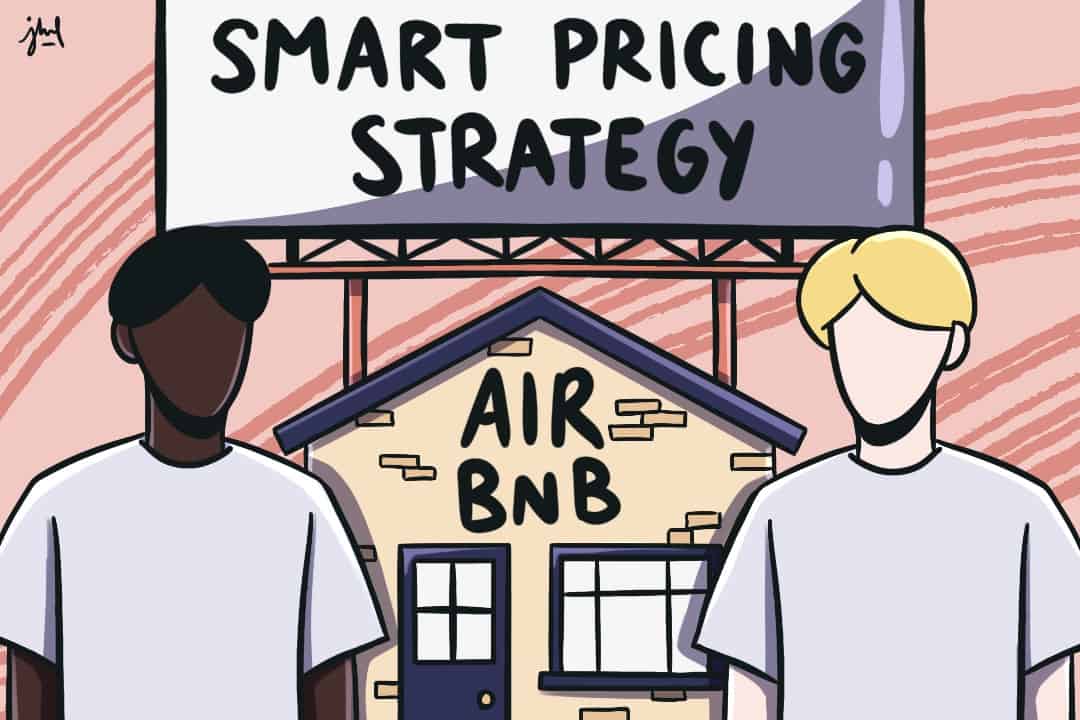Sharing platforms like Uber and Airbnb have exploded in popularity in recent years. If you don’t feel like shelling out money for a car or a hotel, someone will lend you theirs. But you won’t find these ads in the classified section of the newspaper anymore — modern-day ‘sharers’ now rely on these sharing platforms’ artificial intelligence (AI) algorithms to match them with customers.
Machines can only learn from the data they’re given, though, so pre-existing flaws in society could potentially cause factors like race to bias these algorithms’ recommendations. A deep dive into this quandary is what almost won a U of T professor a prestigious award in marketing science this past July.
In July 2021, Nitin Mehta, a professor of marketing at Rotman, alongside Shunyuan Zhang of Harvard Business School and Param Vir Singh and Kannan Srinivasan of Carnegie Mellon University, co-authored “Can an AI Algorithm Mitigate Racial Economic Inequality? An Analysis in the Context of Airbnb.”
The paper was recognized as a finalist for the 2022 John D. C. Little’s best paper award. The award is bestowed annually to the best marketing paper published in Marketing Science, Management Science, or another journal in the INFORMS network — a professional organization dedicated to operations research. Mehta and his team were one of the five finalists for their work.
All about AI at Airbnb
Mehta and his team’s study revolved around Airbnb’s free, optional “smart pricing” algorithm — a feature that dynamically adjusts pricing based on current demand in an effort to increase the volume of bookings. The study found that Black hosts’ low adoption of Airbnb’s algorithm led to an increase in racial earning disparities on the platform.
Mehta’s team used the public resource insideairbnb.com to build a list of all Airbnb properties listed in the cities of Austin, Boston, Los Angeles, New York, San Diego, San Francisco, and Seattle in 2015 and 2017. After sampling randomly from their data, Mehta’s team then used AirDNA — another third-party resource — to obtain data on the average nightly rate, monthly occupancy rate, and other characteristics mentioned on the webpage of each property. They then used deep learning-based image recognition to identify hosts’ racial identities from their provided photos.
Using AI to close the racial gap
Before Airbnb introduced the smart-pricing algorithm, Mehta’s research found that white hosts earned 12.16 USD more in daily revenue than Black hosts on average. The team studied the effects of smart pricing on the racial disparity in the Airbnb hosts’ daily revenue. Among those who adopted the algorithm, the average nightly rate decreased by 5.7 per cent, but higher occupancy rates helped increase the average daily revenue by 8.6 per cent.
In particular, Black hosts saw a significant increase in customers when using the algorithm. The revenue gap between white and Black hosts who had adopted the algorithm decreased by a massive 71.3 per cent of the gap from before the algorithm was introduced.
Hesitancy to adopt
The study detailed the fact that Black hosts were 41 per cent less likely than white hosts to adopt the algorithm, limiting the effectiveness of its original intent. As such, the revenue gap actually increased after the introduction of the algorithm.
Mehta’s findings show that the host’s race does not affect algorithm’s price recommendations — but argued that the algorithm’s race blindness may lead to pricing that is suboptimal, more so for Black hosts than for white hosts.
“This is a well-meaning algorithm,” said Zhang in an interview with Harvard Business School’s Working Knowledge. “It provides flexibility. There is opportunity for a [Black] host to improve revenue, but only if you use it.”
Zhang suggested that Airbnb should encourage hosts to adopt the algorithm, rather than attempt to change it in an effort to increase adoption.
Smart pricing’s future
In an interview with the Financial Times, Singh suggested methods for the home-sharing platform to solve the low algorithm uptake issue: “Airbnb could try to get [Black hosts] to use the algorithm and cover any losses for a few weeks or months, to give them confidence that the algorithm is actually valuable to them,” said Singh. “It can increase adoption and benefit both Airbnb and these hosts.”
As cutting edge artificial intelligence algorithms become further intertwined with the success of sharing platforms, a great deal of care is necessary to ensure such tools can potentially mitigate racial biases — without leading to greater social inequality.


